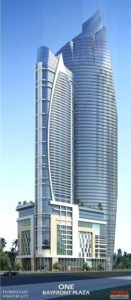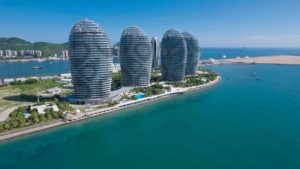Welcome to Part 2 of my interview with Azha Chben from the planet Orozh. Last week we talked about the tectonic upheaval his planet is currently experiencing. This week I’ll explore more about the culture of Orozh,
 S: You had told me you have seven children. Tell me more about them. Are some adults already?
S: You had told me you have seven children. Tell me more about them. Are some adults already?
C: Yes. four are adults from my first wife. Three are still living with me and my current spouse.
S: What kinds of jobs do your adult offspring do?
C: Two are physicians. One is an adjudicator—similar to a judge, although our legal system is much different than yours. The adjudicator determines the status of property, whether or not it is abandoned, etc., sets up legal contracts, etc. My son specializes in interstellar trade contracts. The fourth is a government administrator. The oldest of my second rack of children is taking advanced schooling in the sciences. I believe he will end up becoming what you would identify as a geologist.
S: They all sound quite successful.
C: Everyone is capable of doing some type of job, and all adults are required to work at something. It is the responsibility of instructors to determine the best placement for each of their students. That is one major way our system differs from yours.
S: Do they have any choice in what they do.
C: Yes, but depending on the openings available, they may be required to work in some other field until a job they want opens up, and they might have to relocate far from their family to take it. Most of our young tend to stay close to other extended family members. But some are more adventurous.
S: So you don’t have overpopulation issues, where there are more people than available jobs?
C: No. Because of our geologic issues, we maintain strict population control. Women outnumber men about five to one, and they have a shorter lifespan, as I mentioned. Most women choose not to work because they are quite busy managing a home and several children, though they are allowed to work if they choose, and an older child can manage the home. But deaths due to accidents are common, as well. I cannot say that Orozh is a particularly safe planet. It is beautiful in its own way, but sometimes deadly.
S: I see. You mentioned that your legal system is quite different from ours. Could you explain that a bit more.
C: Of course. As I mentioned, crime is not common on our planet. When it occurs, it is normally the result of a misunderstanding, or in rare cases an individual who suffers a mental disability that impairs their ability to reason. Therefore, our adjudicators are solely responsible for determining what needs to be done legally in a particular situation and then handle the necessary procedures. They specializes in certain areas of practice. As I mentioned, one of my sons specializes in interstellar contracts. Others deal with property issues or planetary business contracts. I work the most with property adjudicators. Due to death or relocation, homes are sometimes left vacant due to unplanned circumstances. We do not buy our homes—they are provided as needed by the government. But if it is not clear what happened to its occupants, the adjudicator will investigate and determine whether it is truly abandoned, or the occupants intend to return at some time. If abandoned, it can be made available to new occupants. There are also cases where a fire or storm destroys a building, and it must be declared a loss and replaced.
S: I see. I take it, in addition to volcanoes, you have some violent weather.
C: Oh, yes. In fact, largely because of the volcanoes, we have frequent storms similar to your magnitude five hurricanes, and often ones that exceed that magnitude. As I mentioned before, we sometimes have to relocate entire populations to a new area. We’ve developed a building material that is lightweight but exceptionally strong. This is a picture of one such complex. The components are manufactured in advance and then assembled on site. We can have one of these ready to move into in a matter of days. They are quite beautiful, but also earthquake, fire, and storm resistant.
S: Definitely impressive, especially that you can get them up that quickly. It does sound like your living conditions are rather crowded, compared to ours.
 C: Compared to what appears to be the norm in the United States, from what I have seen in image transmissions. It is hard for me to imagine a large house with a lot of ground around it, and only one small family unit living in it. It seems quite wasteful. Our living arrangements are much more like what I have seen in large Asian cities—large communities of smaller apartments. This is a picture of a complex in the capital city where I live when I am not traveling.
C: Compared to what appears to be the norm in the United States, from what I have seen in image transmissions. It is hard for me to imagine a large house with a lot of ground around it, and only one small family unit living in it. It seems quite wasteful. Our living arrangements are much more like what I have seen in large Asian cities—large communities of smaller apartments. This is a picture of a complex in the capital city where I live when I am not traveling.
S: Do Orozhans keep any kind of animal as pets?
C: There is an animal called a tripkin. It is more of a companion than a pet. They can’t speak our language, but they understand us readily, and they are very friendly. They are a very large bird, but they have fingers at the shoulder joint of their wings, so they can grasp things.
S: Doesn’t sound very cuddly, like a cat.
C: No. Like I said, more of a companion. Young adults who have moved out on their own often keep one. As I mentioned, we’re accustomed to having a lot of family around us.
S: Do you have problems with major differences in income or economic levels? Do any of your people live in what we identify as poverty?
C: In the distant past, when battles over territory were more common, that developed into an issue. However, two epochs ago, our planet went through a particularly violent period of tectonic upheaval, and nearly sixty percent of our race died out. The survivors were forced to band together planet wide and establish laws to protect what life and usable property remained. By then, we had learned that our planet would continue to experience such problems. It became a matter of survival for the entire species. Transition was difficult, of course, and it was a couples of our centuries before the system was perfected. But it seems to work well for us now.
S: Good. There are many of us on Earth who hope that at some point in the future, we will be able to work together planet wide for the welfare of all humankind.
C: Accepting the need for the betterment of all humankind is the first step. Perhaps you are in the early stages of that transition.
S: I can only hope so. Azha Ikben, thank you so much for taking the time to talk to me. I hope things settle down on your planet soon.
C: It will be along time yet, but we are prepared. Treasure the beauty of you planet, and do not squander it.
S: Sound advice. Thank you again.
C: Life and security to all your people.
Readers, join me next week when I interview Nipi and Oba from Dudra. Until then, fly high and free.
Credit: image of Anurognathus by Masato Hattori
